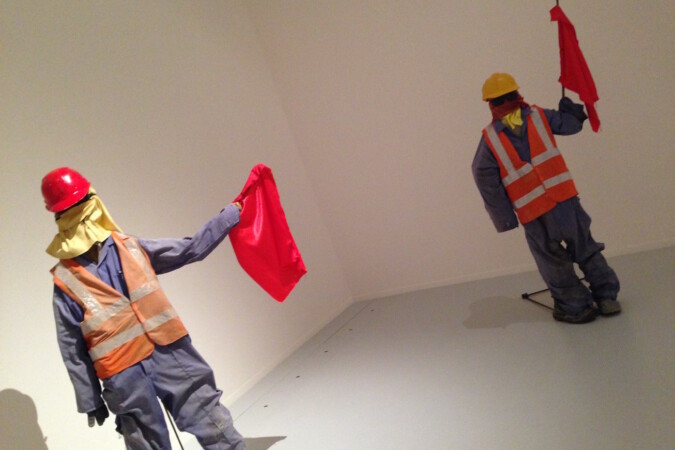Testimonies of Qatar World Cup workers allege labour abuse and lack of justice
Reports by Amnesty and BHRRC document the extreme violations faced by migrant workers connected to FIFA 2022
Six months after the FIFA World Cup 2022 concluded in Qatar, hundreds of workers who toiled to make it a success say they were subject to extreme labour abuse, including wage theft, long work hours and being charged hefty recruitment fees, according to two reports released this week.
Amnesty International and Business and Human Rights Resource Centre (BHRRC) have both issued separate reports documenting the plight of workers from Nepal, Kenya, Ghana, Bangladesh, India, Pakistan and Uganda.
Amnesty’s report focussed on testimonies of those employed by Teyseer Security Services on short-term contracts to serve during the World Cup. The workers, all of whom had paid high fees to obtain jobs, were deployed as marshals and security guards at various locations, including the Khalifa International Stadium, FIFA fan zones, the Corniche, and both in and outside the metro station in Souk Waqif in Doha.
Outlining a pattern of abuse, the report found “that the two key elements of forced labour as internationally defined – involuntary work and threat of penalty – appear to be present in the operations of six of the companies. Their widespread presence demonstrates that Qatar is failing to meet its obligations under the International Labour Organization (ILO) Convention on Forced Labour to “suppress” the use of forced labour in all its forms as soon as possible, and “ensure that penal sanctions are strictly applied on those who imposed forced labour”.”
Apart from poor living conditions, the workers also spoke of discriminatory wages.
The BHRRC report also found workers paid illegal recruitment fees that resulted in debt bondage, and “that all interviewed workers experienced labour exploitation during the World Cup, including 20 workers employed by official Qatar 2022 FIFA World Cup contractors and four workers for subcontractors of official contractors. Sixteen workers were employed or subcontracted by multinational companies.”
Amongst the key findings of their report are:
- Failure of companies to provide access to remedy and transparent grievance mechanism
- Unethical recruitment practices
- Violations of employment conditions
- Struggles to change employment, despite reforms that allow job mobility
In May, The Guardian also reported cases of security guards employed by Stark Security who were unfairly terminated after the World Cup, some of whom say they were detained and deported for demanding their wages.
Workers death
Qatar has been under scrutiny for over a decade, since it won the bid to host the World Cup. In the last decade, it has carried out some labour reforms – partly in response to criticism and international pressure – but implementation remains weak. One of the main criticisms by migrant and labour advocates has centred on migrant worker deaths. While for years, exaggerated and misinterpreted data was put out by international media and organisations, which Qatar denied without transparency of its own statistics, in December 2022 for the first time a Qatari official acknowledged the scale of the problem. The secretary general of the Supreme Committee for Delivery and Legacy Hassan Al Thawadi revealed that deaths at World Cup-related projects was "between 400 and 500". Until then, the country had either deflected criticism around workers’ health, including deaths, and chosen to focus on the inaccuracy of some data.
During the World Cup, two migrant workers died on site. A Filipino worker died due to a workplace accident at the Sealine Resort, where the Saudi team was training. A Kenyan security guard, 24-year-old John Njau Kibue, fell to his death at the Lusail Stadium.
Qatar is yet to issue a report on these incidents, and public comments from officials have been callous. The CEO of Qatar 2022, Nasser Al Khater, dismissed questions on the deaths, and claimed “death was a part of life,” adding “...we have a successful World Cup. And this is something you want to talk about right now? A worker died, our condolences to his family, but it is strange that is something you want to focus on as your first question.”




